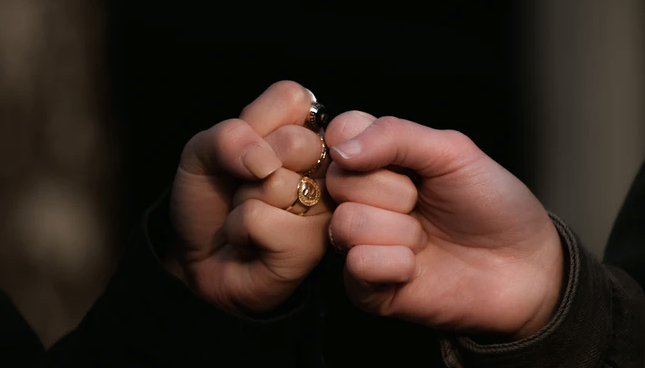By Diana | @sjjdist
April is Autism Acceptance Month, and as an autistic person, I want to provide some feedback to our allistic friends, family, and advocates for autistic people. There are times where well-meaning peers do or say something and think they are doing something to help our community, when in reality they are stepping on toes or being ableist. I want to clear up some misconceptions that I’ve seen this past month, explain why they are ableist and how to do better.
Autism Spectrum Disorder is a developmental disorder that can create challenges for autistic people regarding social skills, emotion management, and sensory experiences. People across the spectrum have a variety of experiences, and not all autistic people have the same problems. For some, school can be very challenging. For others, they may be pretty independent with their schooling and social life, but may struggle to complete basic tasks at home because of how overwhelming it can be.
Personally, I think being autistic is not a bad thing. However, because society is not built for us and leaves us out, it can be very difficult to operate. Autistic people face a lot of challenges that disproportionately affect us throughout our lives. Current research suggests 85% of autistic adults are either unemployed or underemployed. Autistic people typically have comorbid conditions accompanying Autism Spectrum Disorder, including anxiety disorders, ADHD, depression and more. According to this study, 60% of autistic youth had two or more psychiatric conditions in addition to Autism Spectrum Disorder, and things become harder as autistic youth get older. There are few resources for autistic adults, and as someone who has access to some, I am very grateful.
With that being said, ableism is something we experience on a regular basis. I want to address these things, both to help you do better as an ally for autistic people and to help our community.
Comparing Autism to cancer or a traumatic experience, or suggesting Autism as something to be cured
Autism is a developmental delay or disorder. Cancer is a cell mutation that causes cells to grow uncontrollably, which can become life-threatening and fatal. Comparing the two is not only suggesting autism is a disease, but also suggesting that autism is something that should be eradicated. That is a form of eugenics. In fact, the diagnosis of Asperger’s Syndrome (which is classified as an Autism Spectrum Disorder as of 2013) was named after Nazi scientist Hans Asperger, who was responsible for the deaths of thousands of autistic people. Using this diagnosis serves no purpose but to invalidate autistic people’s struggles, as well as suggest this man did anything positive for our community.
With that being said, seeing Autism as something to cure is also harmful. Autism Speaks is an organization that seeks to cure autism. Once again, curing autism is the same as trying to eradicate it, and that is a form of eugenics. Supporting Autism Speaks is supporting the eradication of autistic people. Instead, support the Autistic Self Advocacy Network or the Autistic Women & Nonbinary Network. These organizations support self-advocacy, rather than speaking for autistic people or searching for a cure.
Using the R slur, using IQ scores as a means of measuring intelligence
IQ tests only account for certain types of intelligence, specifically those who have talents in academic subjects and critical-thinking. They also do not account for a person’s level of access to tutoring and school resources, and have a classist and racist history associated with them.
The R slur was originally used to refer to people with an IQ score of 70 or lower and it was used as a medical term until 2013, and has now been replaced with the term intellectual disability. However, this was used colloquially for other people with disabilities and was used casually as recently as the 2000s and 2010s. Autistic people were referred to by the r word for a long time due to our differences and difficulties interacting with allistic people. For this reason, it is deeply offensive to use this word, and ignoring our feelings on the matter is ableist.
Instead, it is important to understand that there are different types of intelligence. While someone may not be gifted with mathematical-logical intelligence, they may be gifted with interpersonal intelligence and they are no less brilliant for it. Some autistic people may have challenges with language, but that does not mean we are not intelligent.
Suggesting or putting an autistic person in ABA therapy
ABA therapy, or applied behavior analysis, is a type of therapy many think can be helpful to autistic people, particularly autistic children. This type of therapy teaches social skills and adaptive skills, and typically works by reinforcing positive behavior and correcting “negative” behavior. It is seen as helpful because it teaches autistic children skills to get by in a society that is not designed for them.
However, there are some problematic aspects to it. ABA therapy for autistic people was used as the basis for conversion therapy for LGBT individuals. ABA slowly conditions children to act in ways that are acceptable neurotypical society. This can involve using techniques like discrete trial training, in which the therapist punishes children who demonstrate “undesirable” behavior by spanking them, playing loud sounds (which can be highly stressful to an autistic person), and even shocking them. They are also trained and told to ignore a child who is acting out and redirect their behavior. There is a lack of concern for autistic people’s feelings in these practices, and many of them treat autistic people as less than, when we are their main subject. Ignoring our feelings and treating us as less than is ableist, and we should be able to have a say in how therapists treat us.
Using functioning labels
Because autism is a spectrum, there are people all across the spectrum with different needs and challenges. There are people who fully speak, and there are people who are partially or fully nonverbal. Some autistic people also have a larger gap between their adaptive skill level and where it should be for a non-autistic person, which can make them need more support than an autistic person who has minor delays in their adaptive skills.
For these reasons, a lot of people refer to autistic people with functioning labels, such as a “high-functioning” autistic person, which refers to an autistic person who can mask well and live independently with some support. However, this is ableist to people across the spectrum. Saying someone is high-functioning is often used to invalidate the very real struggles these autistic people face, and saying someone is low-functioning is condescending and communicates that you see them as less-than because they are obviously autistic. Instead, referring to people as needing less support or more support addresses their needs and does not make them try to fit into neurotypical standards.
Assuming someone’s disability status and speaking over autistic people
That being said, there are also autistic people who are talented communicators, and even autistic people who do not struggle too much with school and can make friends. Autism is a spectrum, and everyone has different experiences. To assume someone is not autistic based on how they look, your interactions with them or anything else, especially when you are not autistic, is ableist.
In addition, when an autistic person jokes about their own condition, speaking up and policing what they say by saying someone you know or their autistic loved one finds it offensive, and attacking the autistic person is not activism. It is ableist to speak over and for other autistic people, especially when you aren’t in the community yourself. It assumes autistic people are incapable of speaking for themselves. Instead, listen to what the autistic people themselves are saying. You may not agree with everything an autistic person says or does, but it is important to let people in their own community handle their own issues.
#LightItUpBlue and the puzzle piece
The puzzle piece was chosen by autism awareness organizations because the board believed that autism was a puzzling condition, and the original logo showed a child weeping on a puzzle piece because autism was considered a tragedy children suffered from. This is ableist because once again, this is advocating for a “cure” for autism. Autism is not a horrible thing like people make it out to be, in fact, there are beautiful aspects to it. My passion for music and community have helped me discover a lot about myself and guide my life path, and I am grateful for it.
The color blue was later chosen as the color for autism awareness because it used to be considered primarily a boy’s condition. Now that resources have expanded, more people who have milder forms of autism are getting diagnosed. This includes a significant number of women and nonbinary people, and anyone who does not identify as male. Using the color blue to represent autism suggests that boys are more autistic than girls or people who don’t identify as male. The puzzle piece is also seen as infantilizing autistic people.
Infantilization
Autism is a developmental delay regarding an individual’s adaptive skills, especially social skills. This can cause autistic people to have social skills of someone much younger than they are. However, that does not mean we are like babies. As I stated earlier, other people speaking over us is ableist and this is because it contributes to us being seen as babies. There are too many people and groups who speak over us, rather than allowing us to speak for ourselves.
Autistic people may have a different level of social skills than an allistic person, but we are still people. We experience emotions and are capable of empathy, just like other people. Treating us as if we are babies because we are different from you is patronizing and offensive.
Assuming autistic people are incapable of empathy
Empathy is the ability to recognize, understand and feel another’s emotions as if they were your own. Empathy is seen as a very important thing for the human experience. Because autistic people can have difficulty recognizing social cues, sometimes we may not pick up on someone’s emotional cues.
However, this does not mean we lack empathy. Assuming so often leads to very ableist and dehumanizing rhetoric. Instead, understand that a lack of recognition does not mean a lack of care and concern, nor does it mean we are incapable of understanding or feeling emotion. We will not necessarily express our feelings in the way you would expect someone to, but that’s okay and should be understood as showing we care in our own way.
Closing thoughts
There are a lot of things that could be listed, but these are some of the most prominent ones I see. During autism acceptance month and throughout the year, keep in mind how your actions can help or harm the autistic community. We are people who deserve respect, and it is up to those who want to support us to be conscious of how their actions affect us.
Be sure to check out our op-ed on neurodivergence in fan spaces here!
Thumbnail from Unsplash




